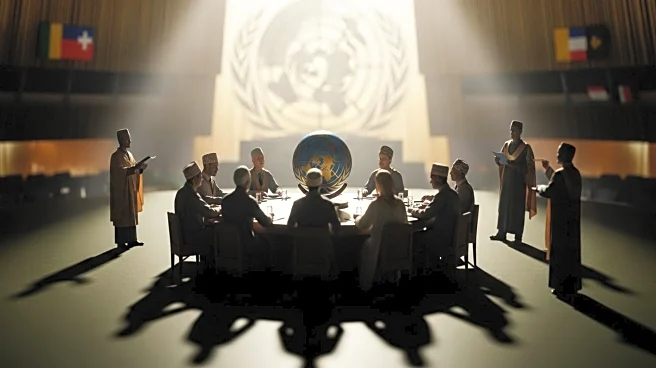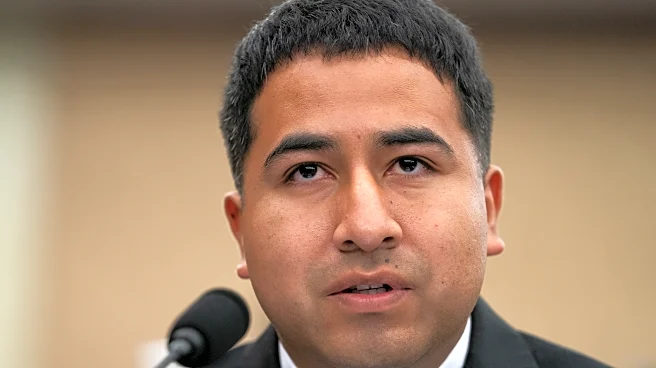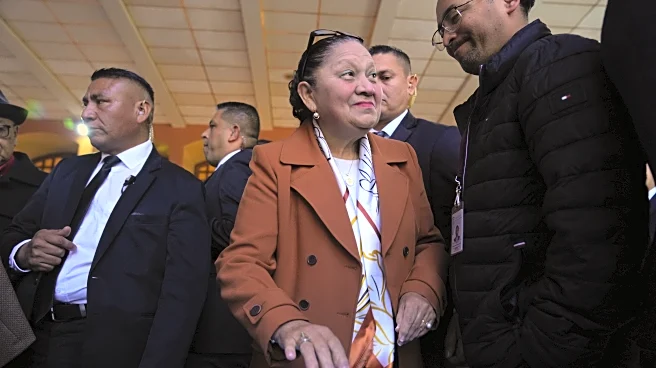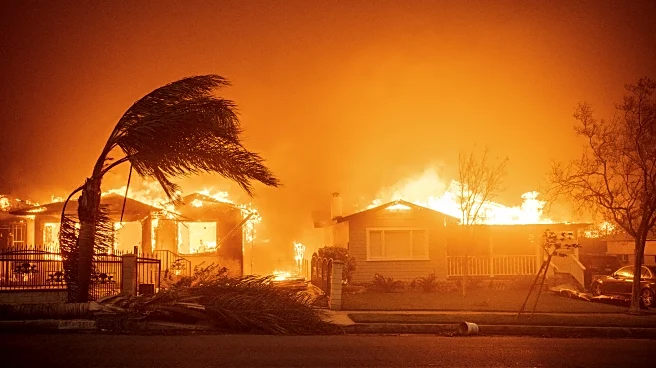What's Happening?
President Trump is scheduled to meet with Arab and Muslim leaders on the sidelines of the United Nations General Assembly in New York. The meetings aim to address the ongoing conflict in Gaza and concerns over Israel's territorial ambitions in the West Bank. Invitations have been extended to leaders from Saudi Arabia, UAE, Qatar, Egypt, Jordan, and Turkey. Discussions are expected to focus on establishing a stabilization force for Gaza and ensuring Gulf countries are not targeted for hosting Hamas leaders.
Why It's Important?
These meetings are crucial in shaping the geopolitical landscape of the Middle East. President Trump's engagement with Arab leaders could influence the resolution of the Gaza conflict and impact U.S. relations with Gulf countries. The discussions may also affect Israel's settlement policies and the broader peace process. The outcome of these meetings could have significant implications for regional stability and international diplomatic relations.
What's Next?
Following the meetings, President Trump is expected to propose a stabilization force for Gaza. The discussions may lead to new diplomatic initiatives or agreements aimed at resolving the conflict. The meetings precede Prime Minister Netanyahu's visit to the White House, which could further influence U.S.-Israel relations and the peace process. Stakeholders will be closely monitoring the outcomes and potential shifts in policy.
Beyond the Headlines
The meetings highlight the complex dynamics of Middle Eastern politics, where diplomatic engagements can have far-reaching consequences. The involvement of President Trump underscores the U.S.'s pivotal role in the region. The discussions may also reveal underlying tensions and alliances, shaping future diplomatic strategies and regional power balances.










![Cortisol vs. Melatonin: The Biological War Happening Inside Every Night-Shift Worker]](https://glance-mob.glance-cdn.com/public/cardpress/binge-magazine-card-generation/spaces/US/en/discover-daily/images/ppid_7byehtbd-image-177082393426031154.webp)